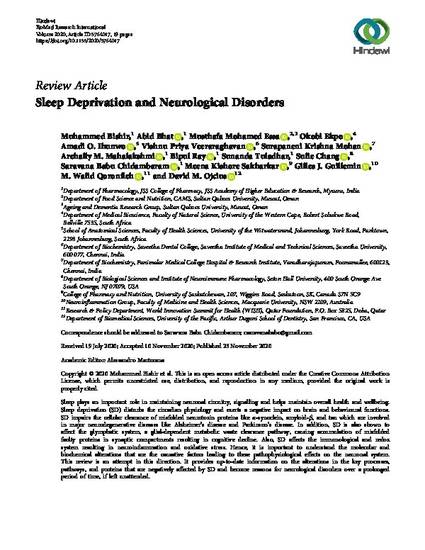
Sleep plays an important role in maintaining neuronal circuitry, signalling and helps maintain overall health and wellbeing. Sleep deprivation (SD) disturbs the circadian physiology and exerts a negative impact on brain and behavioural functions. SD impairs the cellular clearance of misfolded neurotoxin proteins like α-synuclein, amyloid-β, and tau which are involved in major neurodegenerative diseases like Alzheimer's disease and Parkinson's disease. In addition, SD is also shown to affect the glymphatic system, a glial-dependent metabolic waste clearance pathway, causing accumulation of misfolded faulty proteins in synaptic compartments resulting in cognitive decline. Also, SD affects the immunological and redox system resulting in neuroinflammation and oxidative stress. Hence, it is important to understand the molecular and biochemical alterations that are the causative factors leading to these pathophysiological effects on the neuronal system. This review is an attempt in this direction. It provides up-to-date information on the alterations in the key processes, pathways, and proteins that are negatively affected by SD and become reasons for neurological disorders over a prolonged period of time, if left unattended.
Available at: http://works.bepress.com/david-ojcius/344/
